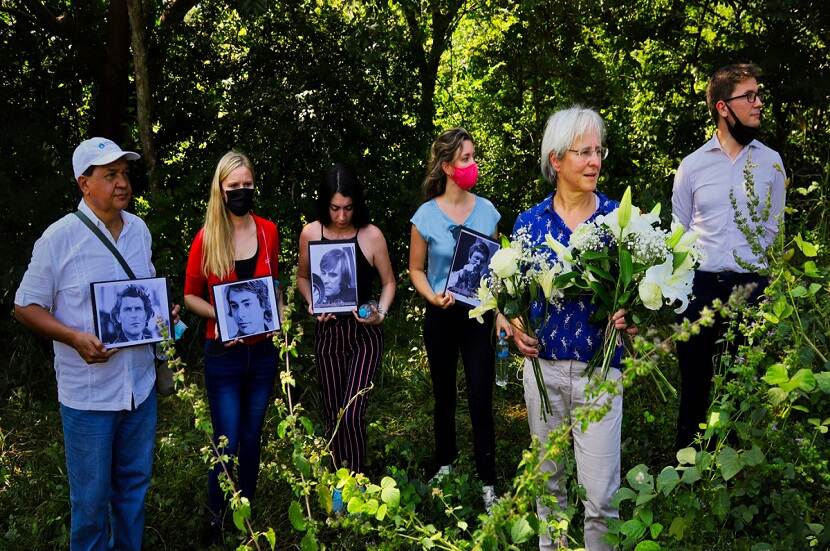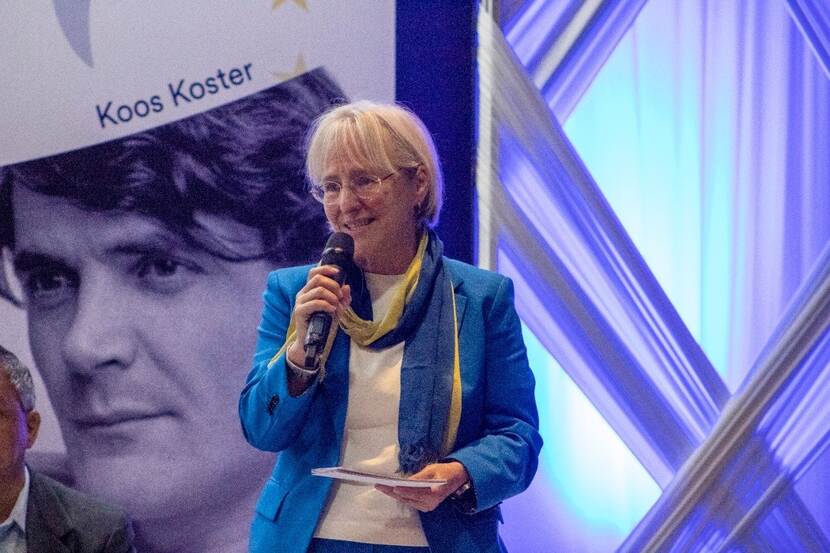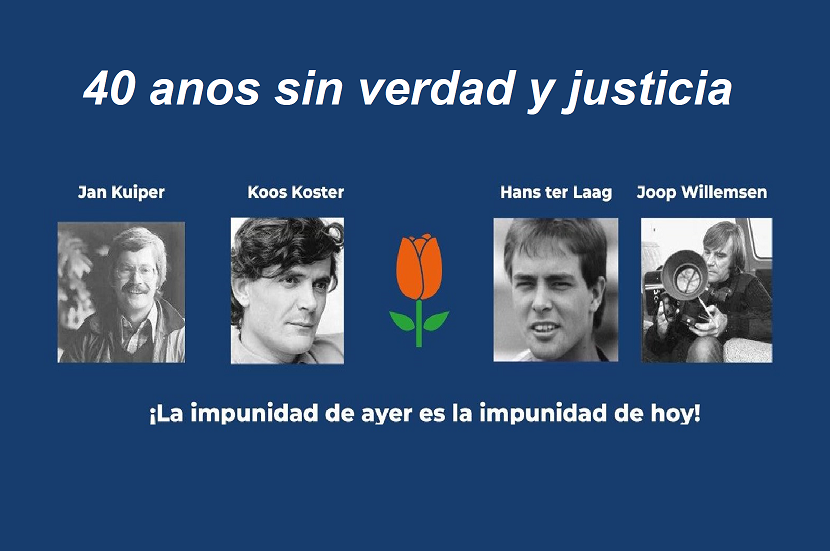After 40 years ‘hope for justice’ for murdered IKON journalists
Forty years after the murder of four Dutch journalists in El Salvador, there was a breakthrough in the case on October 16th: two suspects were arrested and a third may be extradited. Dutch Ambassador Christine Pirenne is very happy. ‘The arrests are a meaningful step forward,’ she says, ‘for the journalists’ families, for the Netherlands and for El Salvador.’

Forty years after the murder of the Dutch journalists Koos Koster, Jan Kuiper, Joop Willemsen and Hans ter Laag, it looks as if the perpetrators are finally being brought to justice. This past weekend, the elderly ex-defence minister Guillermo Garcia and Colonel Francisco Antonio Morán, former head of a special policy agency, were taken into custody. El Salvador will also ask the US to extradite another suspect, Colonel Reyes Mena, who commanded the unit that shot and killed the Dutch nationals in 1982.
'For journalists today, the arrests send the message that crimes against journalists will not go unpunished.’
Salvadoran judge
The arrests are due in large part to the courage and professionalism of the Salvadoran judge, says Ambassador Pirenne. At the same time, the suspects’ imprisonment is the result of a ‘confluence and convergence of many different efforts and circumstances’.
‘Until 2016, any kind of prosecution was practically impossible,’ says Ambassador Pirenne. ‘After the murder was characterised in a 1993 UN report as a crime against humanity, the government declared a general amnesty. That meant that the perpetrators could not be prosecuted. In 2016, however, the amnesty was revoked.’
From that time efforts to obtain justice gained momentum. ‘Many people at the embassy worked towards this end, including my predecessor, Peter Derrek Hof,’ the ambassador says. ‘Under Ambassador Hof we formed a partnership with two NGOs: a lawyers’ collective and an organisation that is advocating justice for victims of war crimes committed in the 1980s.’ Ambassador Hof testified in 2018 when the lawyers’ collective submitted a complaint to the public prosecutor’s office on behalf of the victims’ next of kin.
‘These arrests aren’t just important for the relatives,’ says Ambassador Pirenne. ‘They mean a lot to the Salvadoran victims of the violence of those years and to their loved ones. The arrests encourage them to continue their quest for justice. And for journalists today, the arrests send the message that crimes against journalists will not go unpunished.’
Outrage
The murders of Koster, Kuiper, Willemsen and Ter Laag of the public service broadcaster IKON sparked great outrage in the Netherlands at the time. The four reporters had gone to El Salvador in 1982 to make a television programme. From 1980 to 1992 the Central American country was the scene of a bloody civil war between a right-wing government and left-wing guerrilla groups. The Dutch TV crew planned to portray two families, one in the capital San Salvador and one living in guerrilla-controlled territory. When the team tried to enter the guerrilla-controlled area on 17 March, they were ambushed and shot dead by government troops.
A Truth Commission concluded in 1993 that Colonel Reyes Mena was responsible for planning the ambush. Even now, however, the journalists’ relatives have many unanswered questions. ‘Who gave the order for the murders, and why?’ asks Ambassador Pirenne. ‘We hope more light can be shed on these questions.’
Since the amnesty was revoked, the Netherlands has continued to call attention to the murder of the IKON journalists.
Ambassador Pirenne still remembers the murders clearly. ‘I come from a socially conscious Catholic family,’ she says. ‘We felt very much involved in what was happening in Central America. I still remember my family talking about the case at the dinner table. It made a deep impression on us, as did the murder of Archbishop Óscar Romero. He was shot dead during Mass in 1980, because he strongly criticised government oppression and the brutal violence it meted out against its own people.’
The safety of journalists
Since the amnesty was revoked, the Netherlands has continued to call attention to the murder of the IKON journalists. This has always been a team effort, involving several embassy staff members. Ambassador Pirenne has continually raised the issue of the murder in her meetings with the Salvadoran authorities and called for justice.
A year ago she visited the site of the murders to deepen her understanding of and feeling for what happened there. And this past 17 March, exactly 40 years after the crime was committed, the embassy and the EU co-organised a seminar about the safety of journalists worldwide and the importance of a free press. ‘That got a lot of media attention,’ the ambassador says.
‘During the commemoration, where family members were present, the same band performed that had sung in the Netherlands about the crime 40 years earlier. Their song was about five crosses erected in Amsterdam: four for the four journalists, and one more for the 40,000 Salvadorans who had already died or been disappeared by then in the civil war.’

Answers
Two investigations are currently under way into the murder of the IKON journalists: a Dutch criminal investigation and the reopened investigation in El Salvador. Investigators in the two countries are exchanging information with each other.
Ambassador Pirenne does not know how the investigations will proceed and how soon the suspects will appear in court. ‘I hope of course that there will be a fair trial soon, which I can attend on the Netherlands’ behalf together with the relatives,’ she says. ‘And I hope the trial will provide the answers that the families have been waiting for these last 40 years.’
